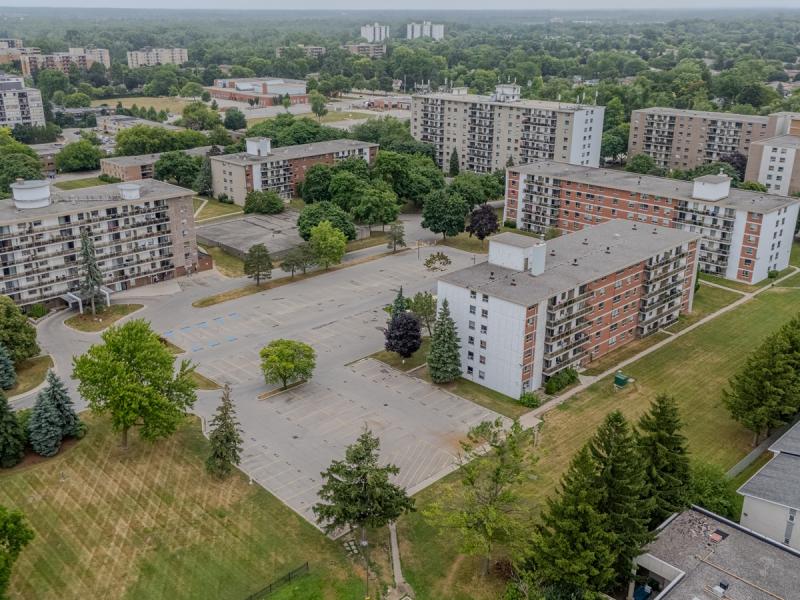
Investment conditions for Canadian commercial real estate are looking more favourable compared to those in the United States, according to the Colliers Canada report Why Invest in Canada 2025.
Colliers Canada head of research Adam Jacobs told RENX past perceptions Canada has made it more difficult or expensive for foreign investors may largely be out of date, based on today's realities.
“Generally, when the world is chaotic and scary, people run to the U.S. and buy U.S. dollars, U.S. bonds and U.S. stocks, but we're in an unusual situation where the U.S. is the cause of the chaos,” Jacobs said.
This makes Canada look like a more stable and safe place to large global investors looking to diversify in North America.
Canada also has good demographic fundamentals. Its population growth rate was double that of the U.S. in 2022 and close to triple it in 2023 and 2024.
While Canada is experiencing a correction with sharply lower immigration in 2025, this is likely a temporary scenario over the next 12 to 18 months. It’s expected that Canada will regain the demographics advantage by 2027 and continue from there.
Canada has lower interest rates
While the U.S. has a lower unemployment rate and higher growth, much of this comes from a large amount of federal deficit spending. Canada’s debt-to-gross domestic product levels at the federal level remain significantly lower than those of the U.S. and are forecasted to remain that way for the next three years, according to Oxford Economics.
Interest rate hikes around the world, designed to control inflation, have severely impacted the commercial real estate development and lending markets.
However, the cost of debt is significantly lower in Canada, with 10-year bond yields below 3.5 per cent. The U.S. has been slow to cut rates, with target rates well above those in Canada and other developed countries around the world.
The gap between U.S. and Canadian borrowing costs is currently much larger than normal at more than a full percentage point.
“When everyone's working with a lot of leverage, a one per cent difference in borrowing costs is pretty significant,” Jacobs observed.
Canadian central bank target rates are also forecasted to remain below U.S. levels for the next several years.
The combination of rising interest rates and increased volatility has negatively affected returns in the U.S., with the MSCI Commercial Property Price Index (CPPI) showing persistent declines since mid-2022. Canada posted mostly positive figures despite rate hikes and inflation.
Canada remains one of the top-performing global markets in the CPPI, with five-year returns surpassing all G7 nations as well as Singapore, Hong Kong and Nordic countries.
Office is attracting more interest
“Industrial has carried a huge amount of weight in the last couple of years and industrial is a bigger part of the investment market here,” Jacobs said when asked what asset classes have been driving investment in Canada. “But now we're seeing more interest in retail and even office, which were the less favoured assets for the last four or five years.”
The combination of no new major office developments coming online and a push by companies to have employees in the office more often are giving the asset class a bump. While office vacancies remain high in Canada’s three largest cities after a development boom in the early 2020s that added tens of millions of office square footage, they’re still in better shape than many of their American peers.
Vancouver, Toronto and Montreal have lower vacancy rates than Chicago, Los Angeles, Dallas, Atlanta, Washington, D.C., Houston and San Francisco.
“We still have pretty vibrant downtowns where people want to be, whether it’s for tourism, sports, entertainment, employment, parks or cruise ships,” said Jacobs. “I think some cities in the U.S. have reached a point where people go to work and want to leave the city five minutes after work is over.”
Jacobs expects Canadian office vacancy rates, especially downtown, to be lower in a year. Suburban office space didn’t take as big a hit in this most recent downturn, and Jacobs doesn’t see it dropping in performance.
U.S. is overbuilt in office and retail
Canada has 12.6 square feet of office space per capita compared to 16.5 in the U.S. and has 16.8 square feet of retail per capita compared to 23.5 south of the border.
Jacobs said it’s easier to develop in the U.S., which he believes works in Canada’s favour.
“If you're looking at a long-term investment, it's attractive in Canada because less development means less competition,” Jacobs explained. “There's less risk of buying an asset and then a new one is built a kilometre away that's better in every way and takes all of your tenants away.”
Foreign investment in Canada is down
Despite these favourable conditions, the foreign buyer share of Canadian commercial real estate assets is just three per cent this year, according to Real Capital Analytics. That’s down from 11 per cent last year and a 10-year high of 37 per cent in 2023. The 10-year average coming into 2025 was close to 15 per cent.
“I think 2025 is a difficult year to assess because the fear over tariffs and the impact of tariffs was profound,” Jacobs said, “but I think we're going to see that come back to life.”
Jacobs cited the May announcement of the $4-billion acquisition of InterRent REIT by Ottawa-based CLV Group and Singapore-based sovereign wealth fund GIC as an example of a foreign investor expanding in Canada.
“There could be a few more deals like that where somebody who has a lot of access to capital is looking at some company or landlord in Canada that has a good portfolio but maybe is in a bit of a pickle in terms of debt or refinancing,” Jacobs said.










